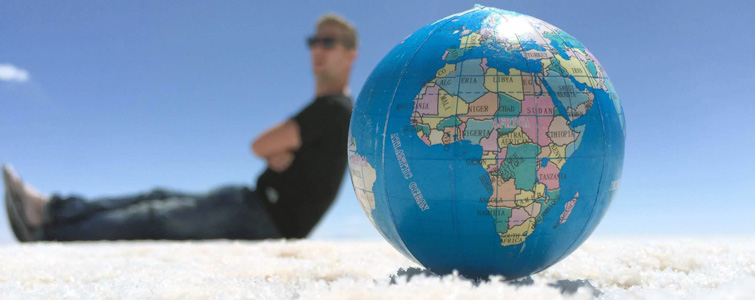Jet lag is a common experience that sometimes occurs when one travels by air. But why do we get jet lag? What is it about? What is the body saying? What is it responding/reacting to?
What is jet lag?
Jet lag, also called ‘desynchronosis’ or ‘time zone change syndrome’, is when one’s body clock is knocked out of sync. This de-synchronicity occurs as a result of the speed in which someone air-travels from east to west (or vice versa) and across time zones. Because the body’s used to its own rhythm/pattern, when it crosses time zones, it’s essentially saying “where am I? I’m not used to this. Something feels different. I’m not sure I like it.”
Did you know?
– Jet lag isn’t caused by the length of time you travel but by the amount of time zones you cross. The more zones you cross, the more jet lag you experience.
– Jet lag only happens when you travel from east to west or west to east, not in any other cardinal direction
– The effects of jet lag have more of an impact if you travel from west to east (not east to west), because the day will feel longer than usual.
– Jet lag is not likely to occur if you only cross one or two time zones. However, it’s not entirely unknown for some people to be sensitive to just one.
– The older someone is, the more impactful the effects of jet lag can be and therefore the longer the body will take to bounce back to its rhythm.
– According to experts, the brain receives less oxygen when a person travels by plane, which might increase the chances of any jet lag problems becoming harsher.
Jet lag and the body’s inner clock…
Everyone has a body clock, an inner rhythm/cycle. ‘Clock’ because it’s based on a 24-hour rotation, entrained by the sun and the moon, day and night.
The body clock is also known as circadian rhythm. This rhythm, this cycle, is responsible for keeping an eye on our day-to-day, including when we sleep, when we wake up, eating and how warm our bodies are. Jet lag tampers with that rhythm – pushes it off-centre – presenting the body with a different beat so-to-speak, a day and night in a different way than it’s used to.
The body has to then adjust to this new beat (i.e., new time zone/local time of the new destination) in order for it to return to its centre/re-synchronise. Until it does that, jet lag is what’s experienced.
So, for example, if you’re travelling from London to New York, the time difference is minus 5 hours. If you get there around 11pm, until your body clock acclimatises itself to the time difference, it actually thinks it’s 6pm and is therefore not looking to retire anytime soon. You are more likely to feel sleepy much later, like 3am or 4am New York time (10/11pm London time).
Eventually, your body will adjust. However, if possible, try and arrive at your destination during the day as the sunlight is a major part of what helps the body clock retune itself. Try and get as much natural light as you can.
Jet lag and its symptoms…
Until the body can adjust itself to the time zone it’s in, the challenge it experiences in trying to sync up again can result in the following:
headaches, digestive problems, loss of appetite, feeling worn out, feeling sleepy, experiencing insomnia, not feeling quite together, trouble focusing or being quick-tempered.
These symptoms can vary depending on the individual, their age, health condition and the number of time zones actually crossed.
Minimising the effects of jet lag…
Apart from sunlight, the following can be done to take the sting out of it:
– Drink plenty of water on the plane. Avoid alcohol and coffee at all costs. Consider also doing so before and after flying.
– If your flight is eastbound, consider having an early night a couple of days before departure. If westbound, consider later nights.
– Try doing some stretching exercises on the plane.
– When you get to your destination, align yourself with the routine of the place as soon as it’s practical to do so. It will help your body clock acclimatise quicker.
– If you arrive during the day and you feel like taking a nap, don’t. With jet lag in tow, if you’re feeling sleepy, it’s not likely to be a nap when you put your head down. It’s much better to succumb to sleep much later, rather than during the day.
– When on the plane, assume you’re already at your destination – set your watch to its time. Also consider sleeping on the plane according to your destination’s time.
Remember, never travel without travel insurance! And never overpay for travel insurance!
I use HeyMondo. You get INSTANT quotes. Super cheap, they actually pay out, AND they cover almost everywhere, where most insurance companies don't (even places like Central African Republic etc!). You can sign-up here. PS You even get 5% off if you use MY LINK! You can even sign up if you're already overseas and traveling, pretty cool.
Also, if you want to start a blog...I CAN HELP YOU!
Also, if you want to start a blog, and start to change your life, I'd love to help you! Email me on johnny@onestep4ward.com. In the meantime, check out my super easy blog post on how to start a travel blog in under 30 minutes, here! And if you just want to get cracking, use BlueHost at a discount, through me.
Also, (if you're like me, and awful with tech-stuff) email me and my team can get a blog up and running for you, designed and everything, for $699 - email johnny@onestep4ward.com to get started.
Do you work remotely? Are you a digital nomad/blogger etc? You need to be insured too.
I use SafetyWing for my digital nomad insurance. It covers me while I live overseas. It's just $10 a week, and it's amazing! No upfront fees, you just pay week by week, and you can sign up just for a week if you want, then switch it off and on whenever. You can read my review here, and you can sign-up here!














 As you know, blogging changed my life. I left Ireland broke, with no plan, with just a one-way ticket to Thailand
and no money. Since then, I started a blog, then a digital media company, I've made
more than $1,500,000 USD, bought 4 properties and visited (almost) every country in the world. And I did it all from my laptop as I
travel the world and live my dream. I talk about how I did it, and how you can do it too, in my COMPLETELY FREE
Ebook, all 20,000
words or so. Just finish the process by putting in your email below and I'll mail it right out to you immediately. No spam ever too, I promise!
As you know, blogging changed my life. I left Ireland broke, with no plan, with just a one-way ticket to Thailand
and no money. Since then, I started a blog, then a digital media company, I've made
more than $1,500,000 USD, bought 4 properties and visited (almost) every country in the world. And I did it all from my laptop as I
travel the world and live my dream. I talk about how I did it, and how you can do it too, in my COMPLETELY FREE
Ebook, all 20,000
words or so. Just finish the process by putting in your email below and I'll mail it right out to you immediately. No spam ever too, I promise!
